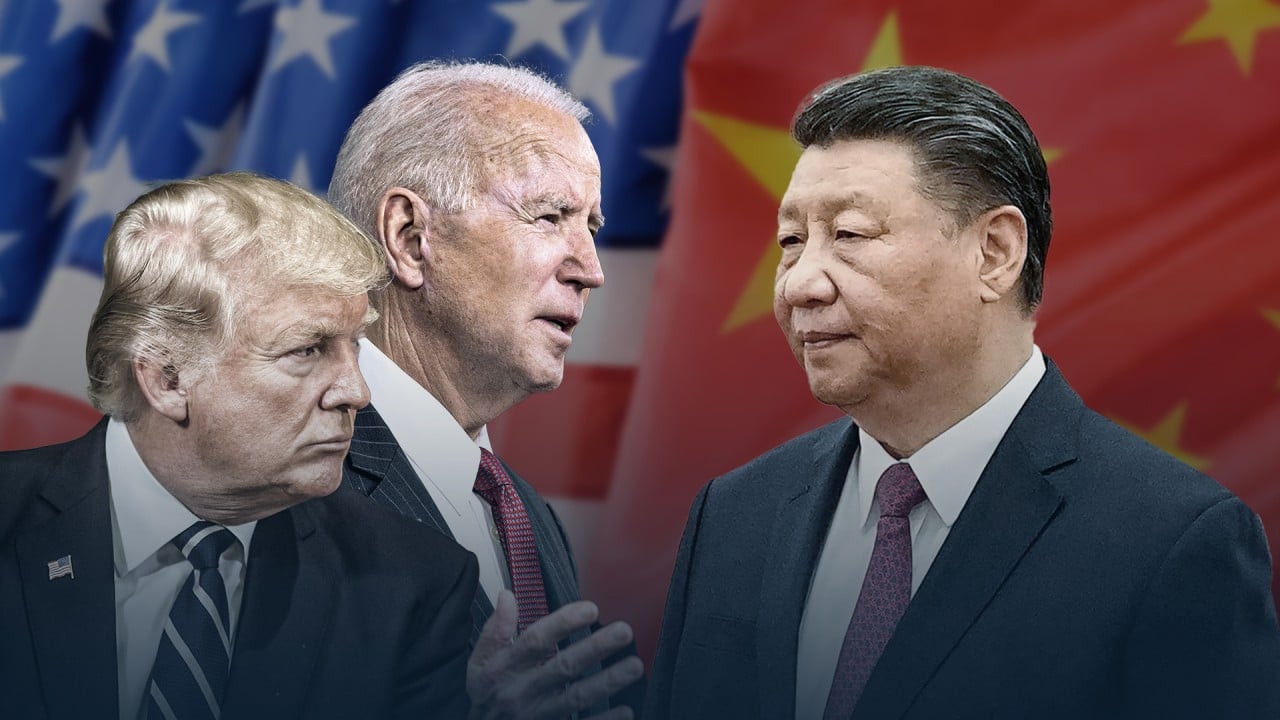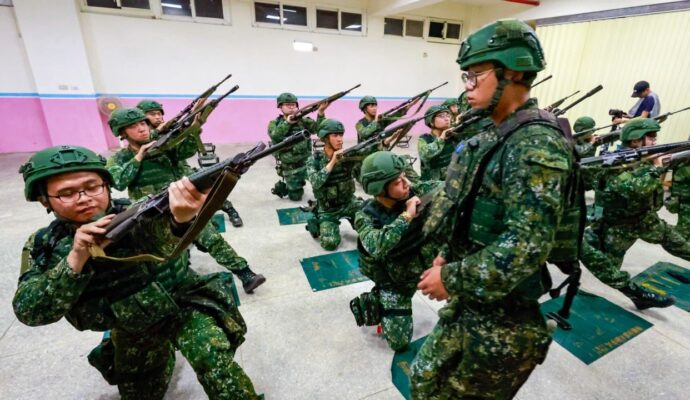The survey data could help policymakers to better assess public sentiment towards security and strike a balance with elites’ views while providing a more accurate reference for overseas observers, he said.
The other threats drawing high attention were “international forces’ intervention in Taiwan” and the global pandemic, which were both deemed by 72.4 per cent of respondents as high and somewhat high threats against China.
The research institute surveyed 2,661 mainland citizens in November 2022, a time when Covid-19 restrictions were still looming and the same month Chinese President Xi Jinping and US President Joe Biden met for the first time in Biden’s presidency, in hopes to repair fractured communications.
Bilateral ties have been hitting low points since the China-US trade war began in 2018, with mounting tensions in the South China Sea and Taiwan Strait.
Along with an intensified Chinese military build-up in the region, there have been increasing fears of armed conflict in relation to Taiwan, which Beijing regards as a renegade province, to be brought under mainland control.
Most countries, including the US, do not recognise Taiwan as an independent state, although Washington opposes the use of force to change the status quo.
Da, the leading researcher, was surprised by finding that China’s public remained generally positive about international security changes, with more than half thinking the world would become safer in five years’ time.
“This has contrasted quite largely with my personal expectation … but higher educated respondents also showed less sense of security, which might imply that those accessing more information or overseas experience have more direct understanding of insecurity,” he said.
But attitudes towards the direction of US-China relations are more ambivalent. While about 45 per cent believed the situation would improve, about 30 per cent did not expect change. About 25 per cent said the relationship would deteriorate.
The online responses were collected randomly from population subgroups whose sex, age, region and census register (urban or rural) proportionally reflect the latest national census.
More than half the respondents said at the time the US had a “great” impact on China’s security, about triple the figure for Russia or Japan, the second and third countries reported by respondents to have the most impact on China.


